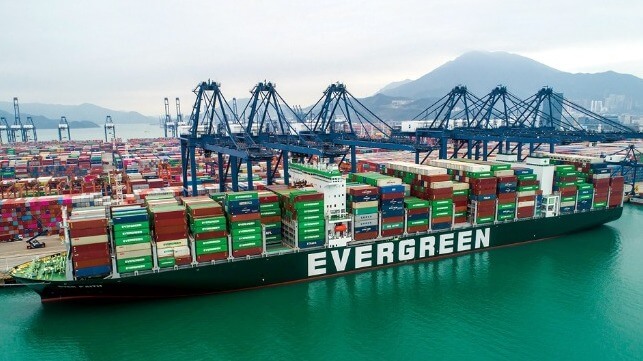Asian-Based Carriers Jump to the Lead in Schedule Reliability

Schedule reliability took its second major drop of 2023 in November during a year of mostly positive momentum. While still significantly ahead of 2022 levels, reliability fell back to March 2023 levels as the industry was confronted with the growing security challenges in the Red Sea and increased waits and delays at the Panama Canal.
“Global schedule reliability recorded the first proper month-over-month decline in November 2023, of negative 2.5 percentage points to 61.9 percent, bringing the score in line with that of March 2023,” notes Alan Murphy, CEO of Sea-Intelligence. “On a year-over-year level, however, schedule reliability was 5.4 percentage points higher.”
Possibly reflecting some of these challenges to the operations of the global fleets, Asian-based carriers showed the most significant gains. For the first time in many years, Evergreen and Wan Hai jumped to the top of the list with Maersk which has been a consistent leader dropping into third place and MSC falling more significantly from second in October to seventh in November. Both of the Asian-based carriers achieved significant year-over-year gains of 33 percent for Evergreen and 21 percent for Wan Hai versus an average 15 percent gain among the major carriers. Maersk was up just under six percent and MSC lost more than three percent year-over-year.
Evergreen led the pack being the only one to achieve 70 percent reliability with a nearly nine percent gain between October and November. Wan Hai in second place was one of six carriers between 60 and 70 percent reliability, with OOCL and COSCO also ranking highly. The big three, MSC, Maersk, and CMA CGM, also remained above 60 percent, although they saw declines of between two and more than 10 percent in their performance. Hapag-Lloyd also saw a nearly 10 percent decline putting it near the bottom of the list among the largest carriers with 54 percent reliability.
“The average delay for late vessel arrivals continues to creep up, increasing by 0.10 days month-over-month to 5.02 days,” highlights Murphy. “With the month-over-month decrease, the average delay for late vessel arrivals is now on a similar trajectory to what we saw during the same time period in 2020.”
It was the first time late vessels were delayed on average more than five days since March 2023. The average delay is up in four out of the five past months and this comes despite the slowed growth in container volumes and reductions in port congestion.

that matters most
Get the latest maritime news delivered to your inbox daily.
Sea-Intelligence reviews schedule reliability across 34 different trade lanes and more than 60 carriers. This report looks at the period before carriers suspended most Red Sea transits adding more than 5,000 miles and as much as two weeks to their voyages from Asia to North Europe. The security problems in the Red Sea are filling up some of the industry’s overcapacity but at the same time have created wide delays for carriers. December’s report will be the first to show the impact of the situation in the Red Sea.
